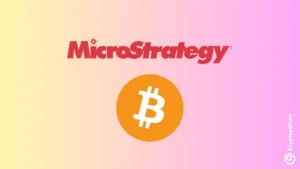Bolivian attorneys Iver von Borries and Javier Romero Mendizabal recently made a proposal to introduce Tether’s USDT as an index asset for commercial and civil contracts in Bolivia. The goal behind this submission is to connect the value of USDT in global markets to the national fiat currency, providing more flexibility in pricing certain obligations within the country. Bolivia, which has maintained a fixed dollar exchange rate since 2011, has been facing challenges due to the disparity between the official and parallel rates, as well as the scarcity of physical dollars. These factors have led to the stagnation of large projects in the country. By incorporating USDT and its exchange rate into contracts, the attorneys believe that these projects can be unblocked, leading to the reactivation of the Bolivian economy.
Von Borries emphasized the potential benefits of utilizing USDT in commercial and civil contracts in Bolivia. By leveraging the stability of Tether’s USDT, businesses and individuals can effectively manage their financial obligations, despite the challenges posed by the current exchange rate system in the country. The proposal aims to bridge the gap between the official exchange rate and the parallel rate, which has been a major hindrance for economic activities in Bolivia. Introducing USDT as an index asset could provide a viable solution to these issues, allowing for smoother operations and increased economic growth in the country.
The attorneys proposed the incorporation of USDT as an index asset in order to address the paralysis of large projects in Bolivia. With the current exchange rate system posing obstacles to the completion of these projects, utilizing USDT as a reference point could lead to a more efficient and streamlined process. By linking the value of USDT to the national fiat currency, businesses and investors can navigate the challenges posed by the existing exchange rate regime, enabling them to move forward with their initiatives. This innovative approach could potentially unlock new opportunities for growth and development in Bolivia, ultimately benefiting the local economy.
The submission of the proposal to introduce USDT as an index asset reflects the attorneys’ commitment to finding creative solutions to the economic challenges facing Bolivia. By tapping into the potential of Tether’s USDT, they aim to provide a practical tool for businesses and individuals to navigate the complexities of the current exchange rate system. This initiative is driven by the desire to foster economic growth and development in Bolivia, by addressing the obstacles that have hindered progress in the past. By embracing new ideas and approaches, such as incorporating USDT into contracts, Bolivia can pave the way for a more resilient and dynamic economy in the future.
In conclusion, the proposal to introduce Tether’s USDT as an index asset for commercial and civil contracts in Bolivia has the potential to address the challenges posed by the current exchange rate system. By leveraging the stability and flexibility of USDT, businesses and individuals can navigate the complexities of the national fiat currency, leading to increased economic activity and growth. The attorneys’ initiative reflects their commitment to finding innovative solutions to unlock the potential of the Bolivian economy. By embracing new ideas and approaches, such as incorporating USDT into contracts, Bolivia can pave the way for a more vibrant and sustainable economic future. With the introduction of USDT as an index asset, Bolivia has an opportunity to revitalize its economy and unleash new possibilities for growth and development.



















